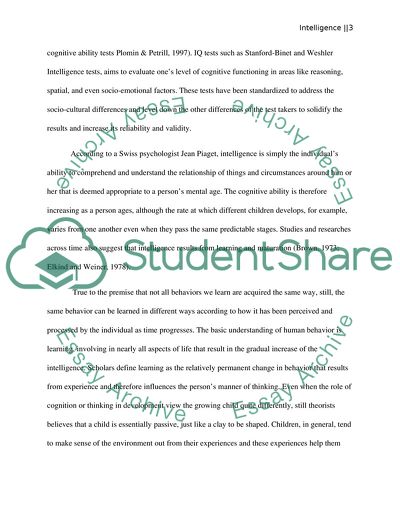Cite this document
(The Development of Human Intelligence: the Level of Cognitive Ability Essay, n.d.)
The Development of Human Intelligence: the Level of Cognitive Ability Essay. Retrieved from https://studentshare.org/people/1737218-intelligence-is-innate
The Development of Human Intelligence: the Level of Cognitive Ability Essay. Retrieved from https://studentshare.org/people/1737218-intelligence-is-innate
(The Development of Human Intelligence: The Level of Cognitive Ability Essay)
The Development of Human Intelligence: The Level of Cognitive Ability Essay. https://studentshare.org/people/1737218-intelligence-is-innate.
The Development of Human Intelligence: The Level of Cognitive Ability Essay. https://studentshare.org/people/1737218-intelligence-is-innate.
“The Development of Human Intelligence: The Level of Cognitive Ability Essay”, n.d. https://studentshare.org/people/1737218-intelligence-is-innate.


